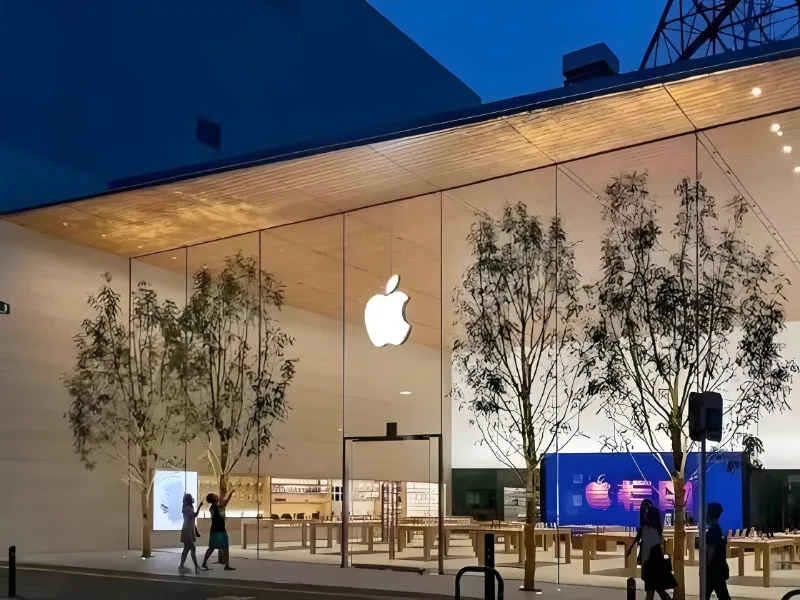- Apple has announced that it will allow competitors access to its tap-and-go mobile payments system, following pressure from the European Union’s regulatory authorities.
- Apple’s decision to open its tap-and-go payments system to rivals holds significant implications for both the tech industry and consumers in Europe. First and foremost, it demonstrates Apple’s response to regulatory pressure from the EU to comply with the DMA. By allowing competitors access to its NFC technology, Apple aims to mitigate concerns about anti-competitive practices and enhance market competition.
OUR TAKE
Apple’s just pulled a surprise move – they’re letting the competition into their exclusive tap-and-go club! It’s like the cool kid in school finally inviting the newbies to the party. But hold your applause, Margrethe Vestager’s still keeping a watchful eye. She says Apple’s only danced around the issue, not fully embracing the EU’s fair play rules. Remember when Apple had a monopoly on that NFC magic? Critics were howling for more options. Now, devs can join the fun, but we’ll see if it’s just a drop in the ocean. With 3,000 banks already backing Apple Pay in Europe, this could be more like a ripple than a wave. Let’s see if Apple’s really ready to shake things up or if they’re just doing the bare minimum to avoid a regulatory smackdown.
–Miurio huang, BTW reporter
What Happened
Apple has announced that it will allow competitors access to its tap-and-go mobile payments system, following pressure from the European Union’s regulatory authorities. This decision comes as Apple faces multiple investigations under the Digital Markets Act (DMA), which seeks to ensure fair competition in the tech industry. Margrethe Vestager, the EU’s antitrust chief, highlighted that while Apple has made concessions on payments, it has not yet fully complied with the DMA’s requirements.
Apple’s tap-and-go technology, based on near-field communication (NFC), enables contactless payments using mobile wallets. Previously, Apple tightly controlled access to this technology, which critics argued limited competition and consumer choice. Now, Apple plans to open up its NFC technology to allow developers to integrate payment apps for rival mobile wallet providers. This move is part of Apple’s effort to address concerns about its dominant position in the mobile payments market and to adhere to EU regulations aimed at fostering a level playing field.
The European Commission has accepted Apple’s proposal, which includes a commitment to maintain these changes for a decade. This decision follows years of scrutiny and a four-year investigation that could have resulted in significant fines for Apple. Over 3,000 banks and issuers across Europe currently support Apple Pay, highlighting its widespread adoption and significance in the region’s digital economy.
Vestager emphasised the importance of Apple’s decision, stating that it prevents Apple from using its ecosystem control to exclude competitors. This move is expected to promote competition, innovation, and consumer choice in the mobile payments sector across Europe.
Also read: Global PC shipments up 3% in Q2, Apple leads with 21% surge
Also read: Microsoft to provide Apple devices to employees in China
Why It’s Important
Apple’s decision to open its tap-and-go payments system to rivals holds significant implications for both the tech industry and consumers in Europe. First and foremost, it demonstrates Apple’s response to regulatory pressure from the EU to comply with the DMA. By allowing competitors access to its NFC technology, Apple aims to mitigate concerns about anti-competitive practices and enhance market competition.
The opening of Apple’s NFC technology is expected to foster innovation and expand consumer choice in mobile payments. Developers will now have the opportunity to create payment apps that integrate with Apple’s ecosystem, providing consumers with more options beyond Apple Pay. This move is crucial in breaking down barriers to entry for competitors, potentially leading to a more diverse and competitive landscape in the digital payments market.
From a regulatory perspective, Apple’s concession signifies a proactive step towards aligning its business practices with EU standards. The DMA mandates that large tech companies create fair conditions for competition and offer users greater choice. Apple’s compliance with these regulations not only avoids potential fines but also sets a precedent for other tech giants operating in Europe.
Moreover, Apple’s decision has been welcomed by stakeholders such as Vipps MobilePay, which sees this as an opportunity to compete on equal terms with Apple and other providers. This positive reception suggests that opening up Apple’s tap-and-go payments system could spur innovation among mobile payment providers, benefiting consumers through improved services and potentially lower costs.
In conclusion, Apple’s move to open its tap-and-go payments system to rivals underlines its commitment to regulatory compliance and market fairness in the EU. While the full impact of this decision remains to be seen, it represents a significant shift in Apple’s approach to competition and innovation in the digital payments sector. As regulatory scrutiny continues to evolve, the tech industry can expect further challenges and opportunities in navigating Europe’s regulatory landsca

